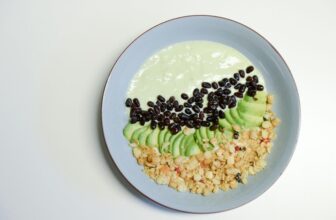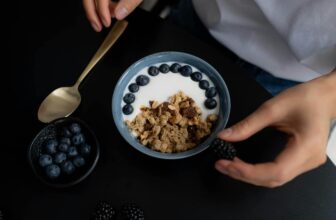
When it comes to selecting the best protein powder to enhance your fitness goals, the process can seem overwhelming with the multitude of options available. However, by understanding your unique needs and objectives, you can narrow down the choices to find the most suitable protein powder for you. Factors such as protein type, quality, and compatibility with your dietary preferences play a crucial role in determining the effectiveness of the supplement. So, how do you ensure that the protein powder you choose aligns perfectly with your fitness aspirations?
Types of Protein Powders
When choosing a protein powder, consider the various types available to match your fitness goals effectively. The first type to explore is whey protein, known for its fast absorption rate, making it ideal for post-workout recovery. If you're lactose intolerant, you might want to opt for whey protein isolate, which contains less lactose.
For those following a vegan diet, plant-based options like pea protein or soy protein are excellent choices. Pea protein is easily digestible and hypoallergenic, while soy protein provides a complete amino acid profile.
If you're aiming to build muscle mass, casein protein could be beneficial due to its slow digestion, providing a steady release of amino acids to support muscle growth over time. Collagen protein is gaining popularity for its benefits in promoting skin, joint, and bone health.
Consider your fitness goals and dietary preferences when selecting the right protein powder type for you. Remember, the best protein powder is one that aligns with your needs and helps you reach your fitness milestones efficiently.
Understanding Protein Content
To understand protein content in protein powders, focus on the nutritional information provided on the packaging. The protein content is typically listed in grams per serving. This information is crucial as it helps you determine how much protein you're consuming with each serving of the powder.
Pay attention to the type of protein listed, such as whey, casein, soy, or pea protein, as each type has different absorption rates and amino acid profiles. Additionally, look for the percentage of protein per serving. A good quality protein powder usually contains at least 80% protein per serving.
Keep in mind that higher protein content per serving is often associated with better muscle recovery and growth. Understanding the protein content in your protein powder is essential for meeting your fitness goals, whether you aim to build muscle, lose weight, or simply supplement your daily protein intake.
Considering Your Fitness Goals
Considering your fitness goals plays a crucial role in selecting the best protein powder for your needs. Are you looking to build muscle mass, improve workout recovery, or lose weight? Different protein powders cater to specific fitness objectives.
If your goal is muscle growth, opt for a protein powder high in essential amino acids like whey protein. Whey protein is quickly absorbed by the body, making it ideal for post-workout muscle recovery.
On the other hand, if weight loss is your aim, a protein powder with added fiber and minimal carbohydrates may be more suitable. Plant-based protein powders like pea or brown rice protein are great options for individuals following a vegetarian or vegan diet.
Understanding what you want to achieve through your fitness routine will guide you in selecting the protein powder that aligns best with your goals. Take the time to assess your objectives and choose a protein powder that will support your fitness journey effectively.
Additional Factors to Consider
To ensure you make the best choice for your protein powder, it's important to take into account additional factors beyond just your fitness goals. Consider your dietary restrictions or preferences, such as lactose intolerance or a vegan diet, to ensure the protein powder aligns with your needs. If you have any allergies, be sure to check the ingredients list for potential allergens.
Another crucial factor is the protein powder's taste and texture – opt for a flavor you enjoy and a consistency that mixes well with your preferred liquid, whether it's water, milk, or a plant-based alternative.
Additionally, think about the protein powder's cost per serving and overall value for your budget. Some powders may be more expensive but offer higher quality ingredients or additional benefits like added vitamins and minerals. It's also wise to look into the brand's reputation for quality and transparency in labeling.
Lastly, consider the convenience of the protein powder – choose a packaging size that suits your usage frequency and storage space. By weighing these additional factors alongside your fitness goals, you can select the protein powder that best supports your overall health and wellness.




